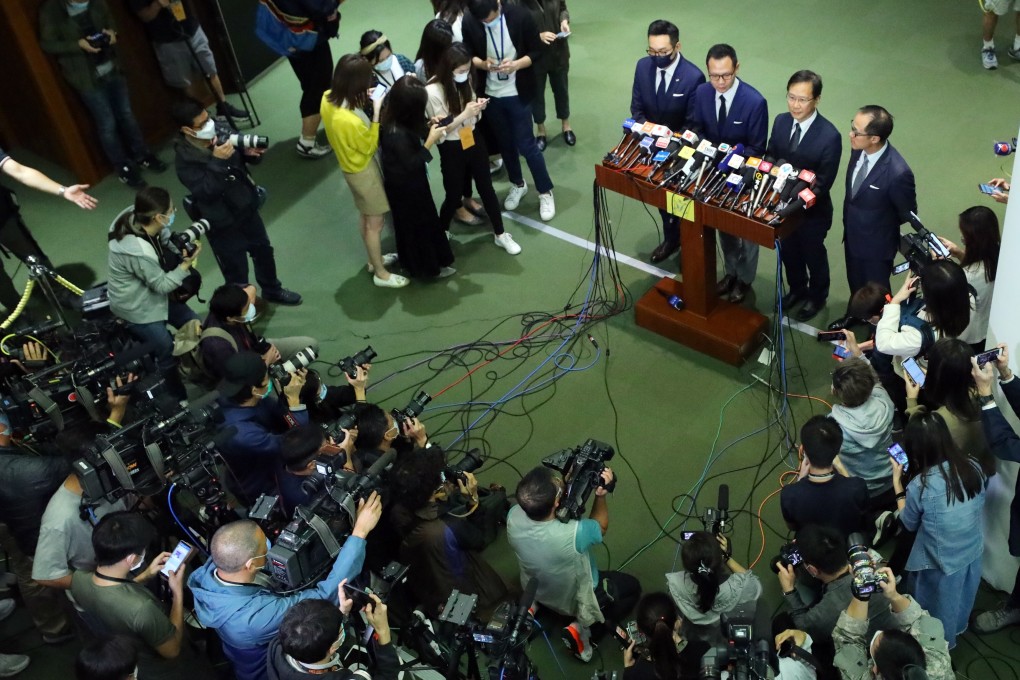EU accuses China of dealing ‘severe blow’ to Hong Kong freedom and seeks immediate reinstatement of lawmakers
- Germany says removal of pro-democracy opposition members is the latest step in a ‘deeply worrying’ trend aimed at undermining pluralism
- British foreign minister Raab says Beijing’s moves do not merely curb freedoms in Hong Kong but also tarnish China’s international reputation

In a declaration unanimously approved by all 27 members on Thursday, the EU called for the “immediate reinstatement of the Legislative Council members” as well as the “immediate reversal” of the decisions made by the Beijing and Hong Kong authorities.
The EU’s statement came a day after the National People’s Congress Standing Committee, China’s top legislative body, empowered the local government in Hong Kong to disqualify lawmakers deemed to be advocating Hong Kong independence, colluding with foreign forces or threatening national security – without having to go through the courts.
“These latest steps constitute a further severe blow to political pluralism and freedom of opinion in Hong Kong,” the EU said in a statement. “This latest arbitrary decision from Beijing further significantly undermines Hong Kong’s autonomy under the ‘one country, two systems’ principle, and the protection of fundamental rights and freedoms in Hong Kong, contrary to China’s international commitments.”